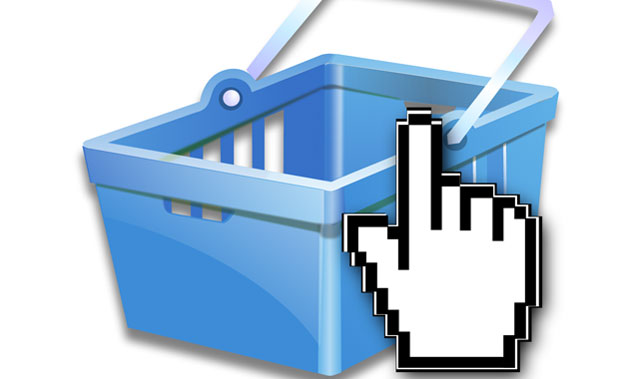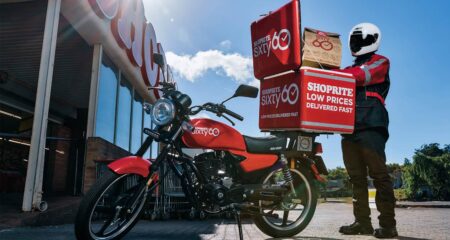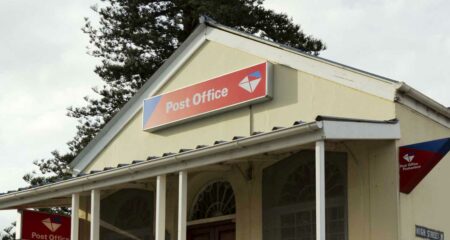
Although online retail counts for less than 1% of South Africa’s total retail revenue, local e-commerce players are betting on a rapidly maturing market that is moving online with increasing confidence.
According to a recent survey released by advisory firm PwC, the country’s online retail sector has a forecasted compound annual growth rate of 15,9% and will be worth an estimated R9,5bn in 2018. Last year, the total value of online retail e-commerce was R5,3bn. Woolworths and Kalahari.com are both hovering around a market share of 6,6%, according to PwC’s report, Total Retail: Retailers and the Age of Disruption.
Other major e-retailers include Amazon, Takealot.com (which has now merged with Kalahari), Pick n Pay and Mr Price, which only entered the online fray in 2012. The high-profile merger between Kalahari and Takealot was a move to create much-needed scale in a market that is still in its infancy, and that has yet to see the big foreign players such as Amazon and Alibaba move in with force.
While the likes of Kalahari prepare for full-scale battle, smaller e-retailers are looking to specialisation as a strategy to survive (and hopefully thrive) as the market grows up. Gary Novitzkas, CEO of specialist health e-retailer juniva.com and previously CEO of Kalahari, argues that large e-retailers simply aren’t equipped to provide “category depth”.
This provides an opportunity for niche players to take hold of certain categories or areas of interest. Yuppiechef.com, for example, has become synonymous with high-quality kitchen and home appliances.
“Often it is a simple issue of passion,” says Novitzkas. “Niche players are passionate about a category, and can go deeper and spend more time on education and community-building than a generalist.”
In addition, Novitzkas insists that shoppers are increasingly looking for more than just a good deal. Driven by a growing appetite for information, consumers want to feel connected to a community and to the brand they are buying from in order to make smart choices.
“Once you reach price parity with a competitor, online or offline, then it becomes about the value that you’re adding,” he explains. “The companies that are doing well are building that community and giving specialist advice – they don’t tell you to ‘buy the pot’, they tell you what you can cook in the pot … and that is the value that they add.”
Justin Drennan, CEO and co-founder of e-commerce start-up Parcelninja, and co-founder of WantItall, agrees that “value add” is becoming essential.

“As larger traditional retailers move online, and existing online players consolidate, I feel it becomes more challenging for ‘like-me’ online retailers to offer a compelling value proposition,” he says. “A move to more niche is something we’ve seen abroad. Essentially, if Amazon is selling it, you shouldn’t be.”
In the US, where online retail accounts for as much as 14% of the total retail of consumer goods, niche players have often outgunned their bigger, generalist rivals. Shoe specialist Zappos.com, for example, grew from a family-run start-up to a billion dollar business by building up a fiercely loyal community of online shoppers. Diapers.com is another massive online specialty retailer for baby products.
Gateway into Africa
While Novitzkas acknowledges that the US is at a different level of market maturity, he says local online retail has grown phenomenally in the past 12 to 18 months, and as online shoppers become more confident and savvy, “the specialists come into play”.
For e-retailers of any size or sector, a lot will depend on how well they can solve the logistics puzzle, and convince South Africans that shopping online is both seamless and safe. Research has shown that local shoppers still prefer browsing online, and then going in-store to make the purchase.
“This year’s survey results show that the online shop has also become a showroom where shoppers research and compare prices for later, in-store purchases,” explains John Wilkinson, retail and consumer leader at PwC in South Africa.
Despite this reluctance, recent foreign investments — such as the R20m investment by London-based C5 Holdings into Parcelninja — suggest that SA e-commerce is viewed as a good bet.
“There has been massive growth in the last two years, and we’ve seen a large upswing in sales,” adds Drennan. “I feel South Africa is seen as the gateway into Africa, with a mix of first- and third-world challenges — which is a nice testing ground for retailers. And as online retail growth slows in the US and Europe, other markets become more attractive.”
- This article was republished from Moneyweb with permission




